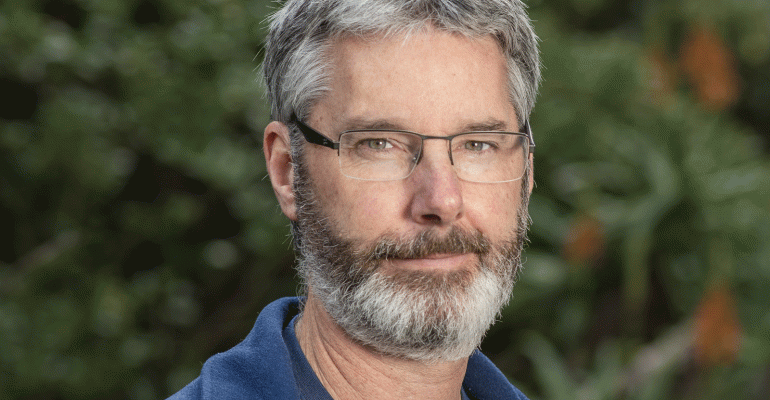- AUTHORAnnouncing our new Impacts and Implications programme lead, NIWA climate scientist Andrew Tait
- August 6 2018
Announcing our new Impacts and Implications programme lead, NIWA climate scientist Andrew Tait

We’re pleased to announce that Andrew Tait, principal climate scientist at NIWA, has taken on the role of Impacts and Implications programme lead. In this short interview, we asked Andrew about his vision for the job, and for the broader challenge of climate adaptation in New Zealand.
Tēnā koe Andrew. You bring years of experience, as a principal climate scientist at NIWA, to this role. Can you talk a bit about how your work as a climate scientist has led you to be interested in the question of adaptation?
Over the last two decades I’ve been involved in numerous climate change assessments for New Zealand and in the Pacific. These projects have focussed on producing climate change projections and then considering the implications and modelling the impacts of these climate changes. This has been fascinating work and is fundamental research for building up our collective understanding of what might lie ahead. Of course, this work is ongoing in the Deep South Challenge and I am thrilled to be involved in shaping this research. Adaptation is the ultimate goal of this work, because only through adaptation will we minimise the impacts and continue to prosper.
I see that adapting to climate change is a people problem, as much as or even more than it is a problem for physical science. I’ve worked alongside social scientists for many years and am excited about exploring different parts of the adaptation problem using social science methods and theories.
This moment in time is unique – we’re seeing the conversation about how to slow or stop climate change come alive in the mainstream. We’re still, however, lagging internationally on the issue of climate adaptation. What excites you about the climate impacts and adaptation work happening in the Deep South Challenge?
There is a clear focus on working with end users and stakeholders in the Deep South Challenge, which is a vital component of adaptation. In fact, it is the single most important factor because adaptation options must be tailored to stakeholders’ needs. Working with stakeholders in a research co-development framework is incredibly exciting and I am really looking forward to producing some really useful outputs that are immediately applicable to a wide range of New Zealanders.
As a National Science Challenge, the Deep South Challenge can’t focus on all climate impacts or on all aspects of climate adaptation. What role do you see our Challenge as having in helping to gain traction on such a complex and intractable issue.
The Deep South Challenge is part of a wider research landscape on climate change impacts and adaptation in New Zealand. It is extremely important for the research performed in the Challenge to inform and be informed by this wider effort, including international studies. I agree that the issue is complex, but I don’t think it’s intractable. Together we can build a collective capability to be prepared for the impacts of climate change. If we plan well, together we can and will adapt.
The Deep South Challenge is starting to transition into its second five years of operation. We’re trying to support joined up thinking on climate adaptation, and to fill some critical research gaps. What do you think the Challenge should hope to have achieved at the end of its 10-year mission?
I am fully supportive of the direction the Challenge is going in and I’m grateful to have an opportunity to work with such talented people. Over the remaining years of the Challenge, I want to see demonstrable evidence of people making climate change adaptation plans based on the best available information. I hope even to see some people begin to implement these plans alongside a robust process of monitoring and evaluation. To me, this will represent the ultimate success for the Challenge. But most of all it will mean that New Zealand is well on the way to becoming a climate-resilient nation.